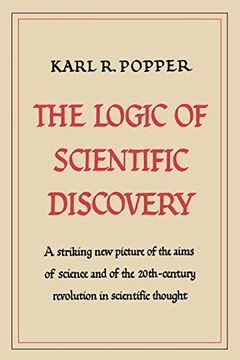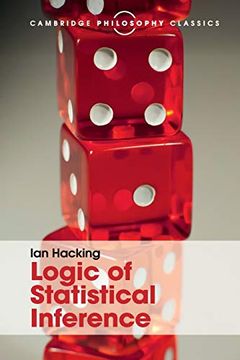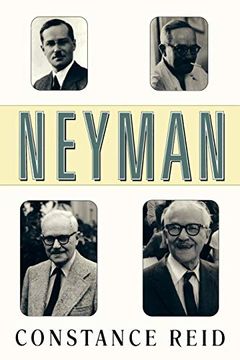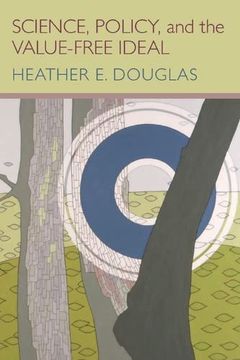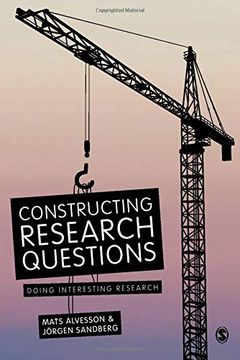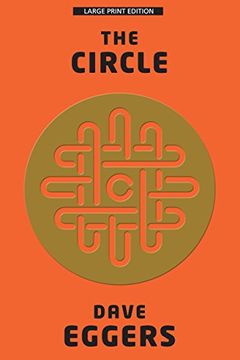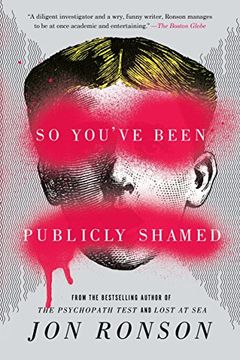Daniël Lakens
Recommended Books
Daniel Lakens is an Associate Professor in the Human-Technology interaction group at Eindhoven University of Technology (TU/e). His areas of expertise include meta-science, research methods and applied statistics. Daniel’s main lines of empirical research focus on conceptual thought, similarity, and meaning. He also focuses on how to design and interpret studies, applied (meta)-statistics, and reward structures in science.
19 books on the list
Sort by
Latest Recommendations First
Layout
Explore the groundbreaking ideas behind scientific discovery in this book by a renowned philosopher of science. Discover a revolutionary understanding of the logical character of scientific breakthroughs, paying homage to the impact of the Einsteinian revolution in physics. Don't miss out on a first-rate contribution to the logic of scientific method, including a captivating analysis of the Indeterminacy Principle in quantum mechanics. Ready to be stimulated and inspired? Dive into this classic work that is sure to be bed-rock for future research.
Daniël Lakens
2022-07-03T08:32:48.000ZField experimentation, quasi-experimental designs, nonequivalent control groups designs, and regression-discontinuity designs. With updated information and examples, this book is a must-read for those interested in causal inference in the field.
Daniël Lakens
2022-04-09T06:32:59.000ZThis book delves deep into the fundamental principles of statistical reasoning and explores their philosophical and practical implications for statisticians. Written by Ian Hacking, the author's ideas are presented in a fresh, modern style and are just as relevant today as they were when first published. With a new preface by Jan-Willem Romeijn, this influential work is a must-read for those interested in the philosophy of statistical inference.
Daniël Lakens
2021-12-22T10:31:54.000Z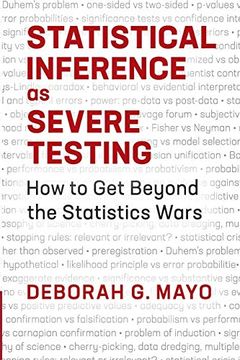
Statistical Inference as Severe Testing
How to Get Beyond the Statistics Wars
This book explores the importance of critically appraising proposed reforms in science, especially in light of mounting failures of replication. It delves into disagreements between experts, rejecting two common views surrounding the role of probability in inference. By providing a simple tool for ruling out flaws in inferring a claim, the book challenges many methods advocated by data experts. Through philosophical tools, it examines the history of inductive inference to solve problems about science and pseudoscience, induction, and falsification.
Daniël Lakens
2021-10-21T11:53:37.000ZLearn about the life and contributions of Jerzy Neyman, a major figure in the development of statistics. In this book, author Constance Reid explores Neyman's role in the creation of modern statistics. Written for both professional statisticians and those with a general interest in the subject, this read sheds light on a topic that touches almost every aspect of life today.
Daniël Lakens
2021-09-14T16:55:13.000ZThis book delves into the role of science in policymaking and explores the idea that science should be "value-free." The author argues that a new ideal is needed in which values play an essential function throughout scientific inquiry, but are constrained to protect the objectivity of science. Through a philosophical analysis, the book defines how and when values should function in science and outlines seven senses of objectivity. The author then uses these insights to clarify the distinction between junk science and sound science in policymaking. The book concludes by calling for greater openness and public participation in the policymaking process.
Daniël Lakens
2021-06-17T19:09:33.000Z"Constructing Research Questions" by Mats Alvesson and Sandberg provides a unique approach to formulating innovative research questions that can lead to influential theories. While traditional research methods tend to overlook constructing research questions, the authors provide a problematization methodology for identifying and challenging assumptions underlying existing theories. Through practical examples across various social sciences, readers are shown how to think beyond 'gap-spotting' techniques and create novel research questions that challenge existing theories and produce imaginative empirical studies. This book is a must-read for any researcher looking to formulate interesting and novel research questions.
Daniël Lakens
2021-04-04T08:11:47.000ZExperience the exhilarating new novel from a bestselling author that explores themes of ambition, idealism, and the limits of human knowledge. When Mae Holland joins the world's most powerful internet company, she feels like she's hit the jackpot. The Circle links every aspect of users' lives into one online identity, creating a new age of civility and transparency. Mae is thrilled with the company's modernity and can't believe her luck to work for the most influential company in the world. But as she becomes increasingly public in her role, her life beyond the campus grows distant, and a strange encounter with a colleague leaves her shaken. This heart-racing novel raises questions about memory, privacy, democracy, and the history of our personal lives.
Daniël Lakens
2021-03-22T12:12:26.000ZThis captivating exploration delves into one of our world's most underappreciated forces: shame. The author, Jon Ronson, has traveled the world meeting people who have been publicly shamed, often because of a small mistake or joke gone wrong on social media. Ronson examines the terrifying power of collective outrage and the escalating war on human flaws, and raises important questions about justice, democracy, and social control. A powerful and honest book that exposes the very scary part we all play in this cultural phenomenon.
Daniël Lakens
2021-03-22T12:10:18.000ZDesigning Experiments and Analyzing Data by Scott E. Maxwell
Theory Construction and Model-Building Skills, Second Edition by James Jaccard
Serious Stats by Thom Baguley
Social Science Methodology by John Gerring
Introduction to Meta-Analysis by Michael Borenstein
Understanding Psychology as a Science by Zoltan Dienes
Uncertainty by David Lindley
What Is This Thing Called Science? by Alan F. Chalmers
What If There Were No Significance Tests? by Lisa L. Harlow
Theory Building by Robert Dubin
